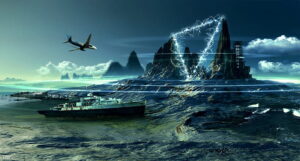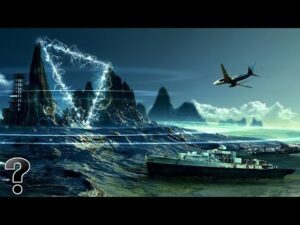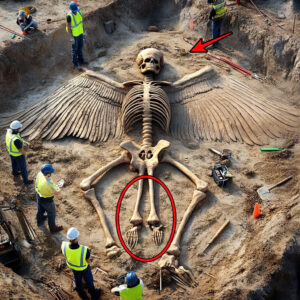In the heart of the Atlantic Ocean lies a region shrouded in mystery and mystery. The Bermuda Triangle, also known as the Devil’s Triangle, has captured the imagination of adventurers, scientists, and conspiracy theorists alike. Spanning an area of approximately 500,000 square miles between Miami, Bermuda, and Puerto Rico, this mysterious area has become the epicenter of countless unexplained disappearances of ships and planes.

For decades, the Bermuda Triangle has been the subject of books, documentaries and scientific studies by new authors. The first recorded site of regular activity dates back to 1918, with the disappearance of the USS Cyclops, a massive Navy cargo ship with more than 300 inhabitants on board. Since then, more than a thousand lives have been lost in this mysterious space.
One of the most famous disappearances occurred in 1945, when five Navy Aveger torpedo bombers, known as Flight 19, disappeared during a tracking mission. Despite exhaustive search efforts, no trace of the plane or its crew was ever found. This event gave rise to the Bermuda Triangle’s reputation as a hotbed of unexplained phenomena.
Theories about the Bermuda Triangle mysteries range from the scientific to the fantastical. Some scientists attribute the disappearances to environmental factors such as predictable weather patterns, powerful underground water currents and methane hydrates that can reduce water deficiency and cause ships to sink quickly. Others point to navigational errors and human error as explanations.
On the other hand, more imaginative thoughts suggest the presence of extraterrestrial activity, time portals and the lost city of Atlatis as possible explanations for the strange occurrences in the Triangle. The appeal of these theories lies in their ability to transcend the boundaries of conventional science and enter the realm of power.
Despite the plethora of theories, the Bermuda Triangle remains a major area of research. The National Oceanic and Atmospheric Administration (NOAA) and other scientific organizations have conducted extensive research in the region. While many paternal explanations have been proposed, the Pope has definitively solved the mystery.
Technological advances have allowed for more sophisticated studies of the area. Satellites, submersibles, and advanced radar systems are currently used to monitor and analyze conditions in the region. These efforts contribute to providing valuable data, but the secrets of the Bermuda Triangle remain elusive.

The charm
The mysterious mystery of the Bermuda Triangle helps captivate the world. It is a testament to humanity’s fascination with the current and our relentless search for answers. As technology advances and exploration of the world’s oceans multiplies, perhaps one day we will unravel the secrets hidden within this epigmatic trio.
For now, the Bermuda Triangle remains an enigma, a place where the line between reality and myth blurs. It is a region that challenges our understanding of the world and invites us to explore the mysteries that lie beyond our reach. Whether a scientific anomaly or a portal to the world of the world, the Bermuda Triangle will undoubtedly contribute to intrigue and mystify us for generations to come.







